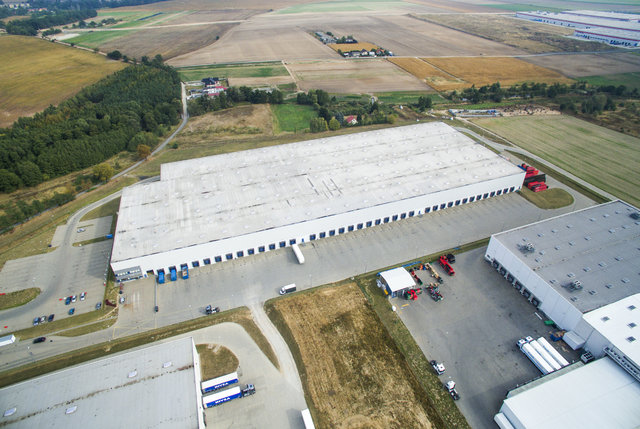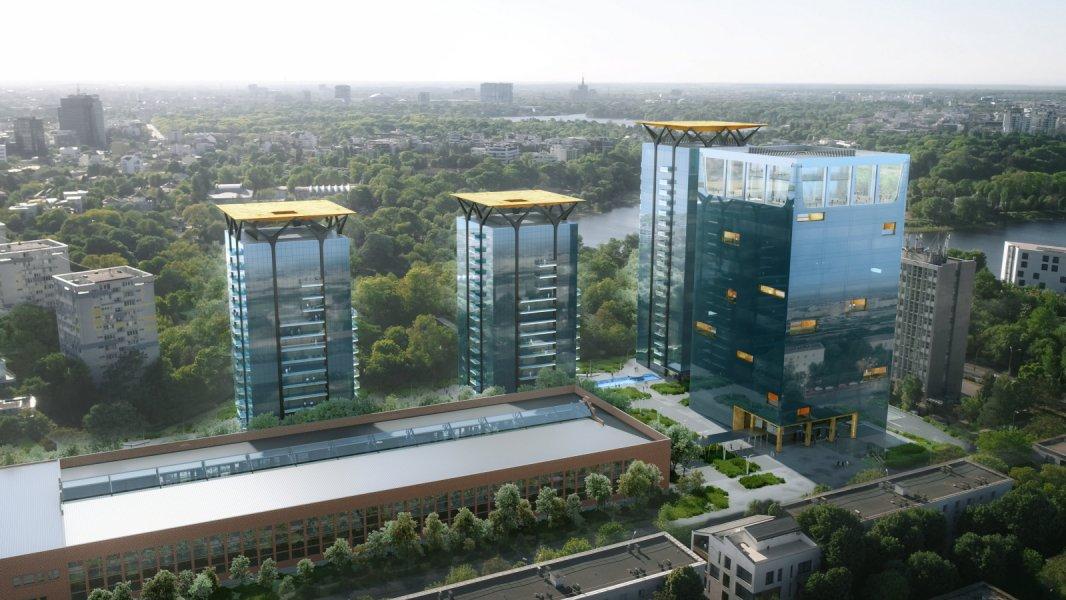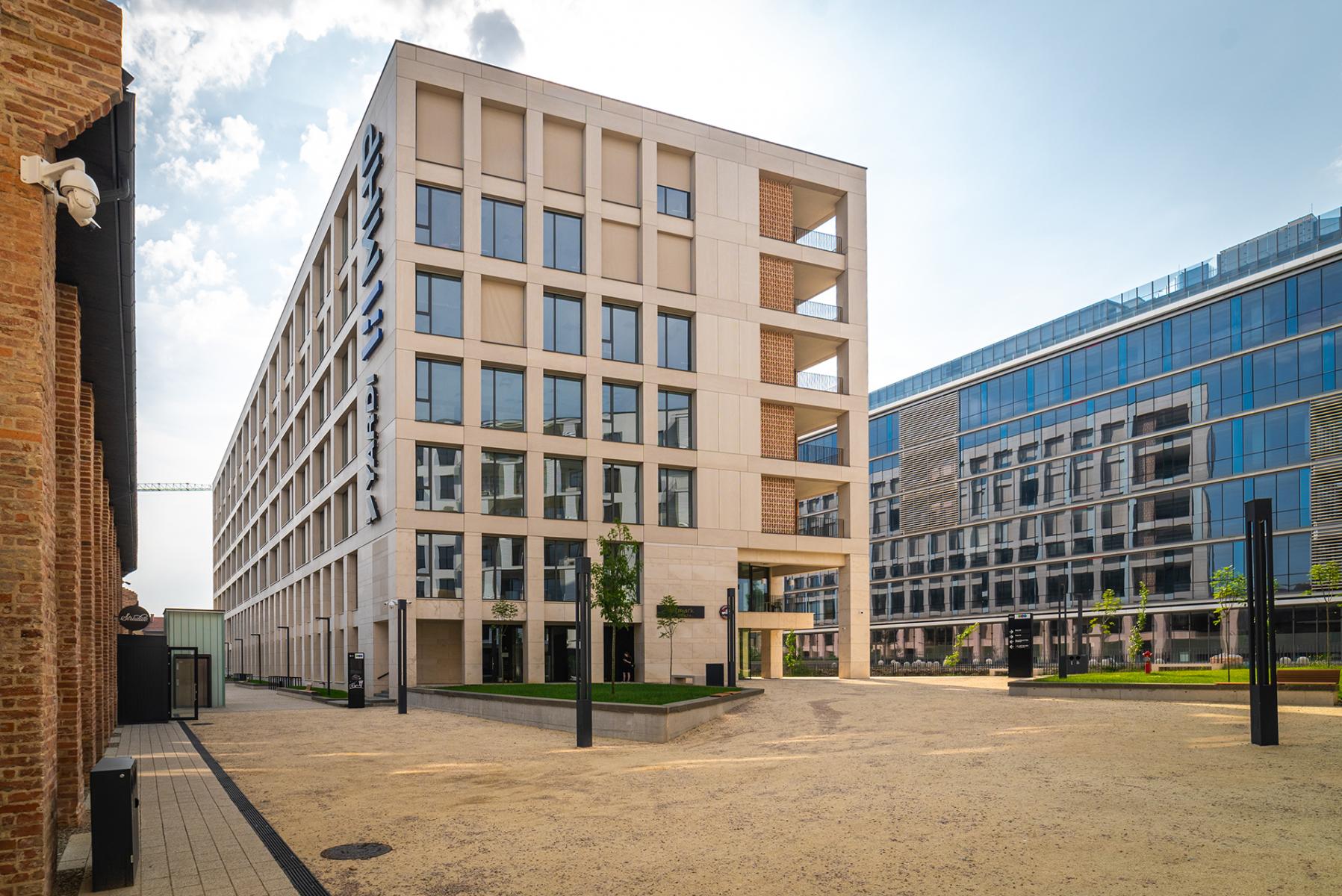Industrial premises for lease in the greater Prague region almost exhausted
Vacancy rate falls to all-time low of 0.55 %. The first quarter of 2021 saw record low vacancies in the greater Prague region, affirming consistent high interest in industrial premises in premium locations. High demand is pushing lease prices upwards, with lease prices having grown by 25 % per sq m year-on-year within the Prague cadastral district, for example. The Czech industrial real estate market is being impeded by drawn-out approval processes and a lack of new options in areas with the greatest demand.
Vacancy rate within the greater Prague region falls below 0.6 %
The vacancy rate for industrial premises within the greater Prague region (i.e. the City of Prague, Prague-East and Prague-West districts) fell in the first quarter of 2021 to an all-time low of 0.55 %. Even so, this region contains around 3 million sq m of industrial premises for lease, representing the largest area of all the different regions in the Czech Republic. “Within Prague and the greater Prague area, the situation in regard to lease of industrial premises is becoming critical, one reason being the lack of new project planning. We anticipate that within a timeframe of at least the next two years, at most only the occasional single larger industrial building will be completed,” says Jakub Holec, CEO at 108 AGENCY.
Industrial, commercial and logistics enterprises are crucial for the Czech economy and consumer market. A lack of space to develop their activities alongside the economic impacts of the coronavirus epidemic and disruptions in global supply chains have placed many companies in a difficult position. The industrial premises situation is similar in Brno. In the Moravian capital, however, the situation is more positive looking into the future since there are a number of new projects planned. In the final phase of preparation are CTP’s expansion into Černovická terasa, Panattoni’s expansion at Brno airport, and an entirely new project by developer GLP in Holubice.
Growth in the industrial development market would be greatly facilitated by shortening preparation deadlines within approvals processes. “Approval for industrial construction currently takes a number of years, and for the developer it often represents activity with an unclear outcome. It’s not just about land-use planning, building permission and environmental burden assessments. There is also a problem in removing plots from the land fund, and frequent lack of support from local government. Many parties get involved in the process, which then expands in terms of time, complexity and risks, and compared to neighbouring countries we are clearly losing in this regard,” adds Robert Sgariboldi, head of the Industrial Lease division for 108 AGENCY.
Costs and demand for industrial premises continue to grow
For the industrial real estate market, a healthy vacancy rate would be around 5–6 %. Values below 1 % are unhealthy in the long term, and such a market can unequivocally be termed an owner’s market. The cost of leases in this case, combined with high demand, naturally continues to increase. Many tenants realise this and are now endeavouring to secure premises for their business for a longer advance period, since the situation regarding an improved market remains obscure from their perspective. Thus current lease contracts are being extended for periods of five to ten years. High demand also leads to a growth in lease costs in the surroundings of cities. Within the Prague cadastral district, for example, the lower limit for lease costs was of the order of 4 EUR/sq m in the first quarter of 2020. Today, it has reached 5 EUR/sq m, representing a year-on-year increase in lease cost per sq m of 25 %. In locations with the highest demand and a lack of land for further development, i.e. East and South-East Prague around the D1 motorway, prices range around 6 EUR/sq m.
There has also been a further widening of the price gap between desirable locations around Prague and Brno and, for example, border regions, where there is still plenty of land for new construction, whether on greenfield or brownfield sites. “In the Ostrava region, for example, thanks to high supply and a competitive environment, we’re observing a slight quarterly fall in prices of 5–10 %. This may cause some tenants to reassess their location strategy, especially for operations which supply the entire Czech Republic or the CEE region and which are not directly tied to Prague or Brno,” says Michal Bílý, 108 AGENCY analyst. An example of this is Sportisimo’s recently announced distribution warehouse move from Rudná u Prahy to Ostrava-Hrušov, which is to take place in 2022–2023.
Czech industrial property market in Q1 2021 in figures
The total modern industrial premises area for lease in the Czech Republic had reached almost 9.3 million square metres by the end of the first quarter. Only 47,046 sq m of premium industrial premises were completed, representing a significant fall compared to the previous quarter, plus on a year-on-year basis compared to Q1 2020. 465,088 sq m was under construction. A continuing trend is ever-falling vacancy rates, which compared to Q4 2020 fell by 0.87 % to a rate of 4.07 %, and we anticipate this value will fall further. The lack of available premises is also related to high client demand. Gross take-up for the first quarter of 2021 surpassed 800,000 sq m, thus exceeding, for example, gross take-up for the whole of 2011.





 2021-08-10
2021-08-10
 2021-08-10
2021-08-10
 2021-08-10
2021-08-10